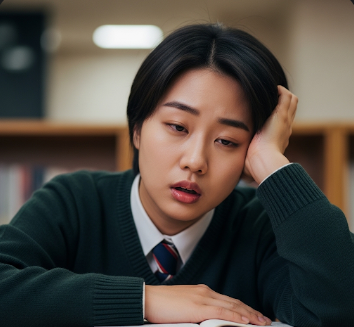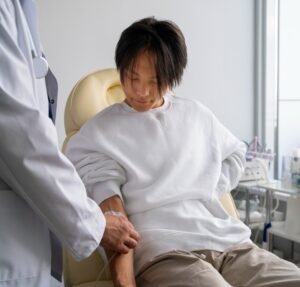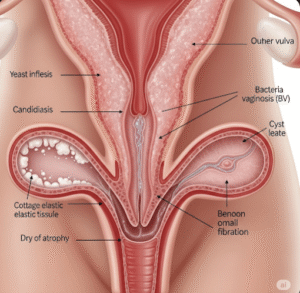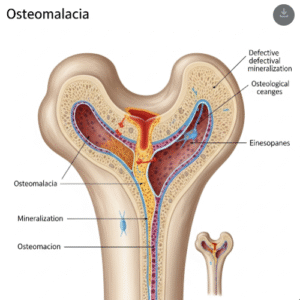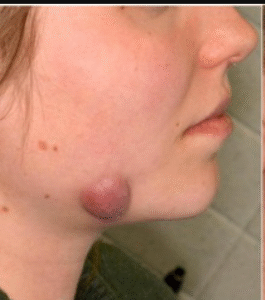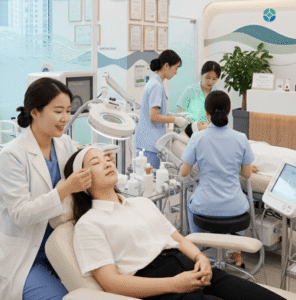➤ Overview
Somnolence, commonly referred to as drowsiness or excessive sleepiness, is a state of reduced alertness and a strong desire to sleep. It can occur as a normal response to fatigue or inadequate sleep but may also indicate underlying medical conditions or the side effects of medications.
In South Korea, somnolence is evaluated by sleep specialists, neurologists, and primary care physicians to determine whether it is benign or pathological. Addressing somnolence is important to improve daily functioning, prevent accidents, and maintain overall health.
➤ Key Facts
→ Somnolence is different from normal tiredness; it often persists despite adequate rest.
→ It can be acute or chronic, depending on lifestyle or medical factors.
→ Common triggers include sleep deprivation, medication side effects, sleep disorders, or systemic illnesses.
→ In Korea, sleep clinics and hospitals offer advanced diagnostic tools such as polysomnography and actigraphy.
→ Excessive drowsiness can impact cognitive performance, work productivity, and safety.
→ Proper diagnosis distinguishes primary sleep disorders from secondary causes like metabolic or neurological conditions.
→ Lifestyle, environmental, and medical interventions are combined for effective management.
➤ What is Somnolence?
Somnolence is a state of strong sleepiness, often characterized by difficulty staying awake, frequent yawning, and reduced alertness.
→ Physiological somnolence – Temporary sleepiness due to fatigue, sleep deprivation, or circadian rhythm disruption.
→ Pathological somnolence – Persistent drowsiness caused by sleep disorders, metabolic conditions, or neurological diseases.
→ Medication-induced somnolence – Side effect of sedatives, antihistamines, or other drugs.
→ Chronic somnolence – Can significantly interfere with daily activities and quality of life.
Korean specialists assess sleep patterns, lifestyle factors, and medical history to determine the cause and appropriate intervention.
➤ What Symptoms are Related to Somnolence?
Somnolence often occurs alongside other related symptoms, which can provide clues to the underlying cause:
→ Excessive daytime sleepiness, even after adequate nighttime sleep.
→ Difficulty concentrating or impaired cognitive function.
→ Frequent yawning and lethargy.
→ Falling asleep unintentionally during work, study, or social activities.
→ Irritability or mood changes due to disrupted sleep.
→ Headaches associated with sleep deprivation.
→ Nighttime sleep disturbances, such as insomnia or fragmented sleep.
→ Snoring or observed apnea episodes, potentially indicating sleep apnea.
➤ What Causes / Possible Causes?
Somnolence can result from various physiological, neurological, and systemic factors:
→ Sleep deprivation – Insufficient sleep duration or poor sleep quality.
→ Sleep disorders – Obstructive sleep apnea, narcolepsy, restless leg syndrome, or insomnia.
→ Medications – Sedatives, antihistamines, antidepressants, or anti-seizure drugs.
→ Metabolic conditions – Hypothyroidism, diabetes, or electrolyte imbalances.
→ Neurological disorders – Parkinson’s disease, stroke, or brain injury.
→ Psychiatric conditions – Depression, anxiety, or chronic stress.
→ Alcohol or substance use – Sedative effects leading to daytime drowsiness.
→ Shift work or irregular schedules – Disruption of circadian rhythms.
➤ When Should I See My Doctor?
Medical evaluation is necessary if somnolence is persistent, severe, or accompanied by other concerning symptoms:
→ Excessive sleepiness lasting more than a few weeks despite adequate rest.
→ Sudden onset of drowsiness without identifiable cause.
→ Associated with confusion, memory problems, or difficulty performing daily tasks.
→ Loud snoring or pauses in breathing during sleep, indicating sleep apnea.
→ Drowsiness accompanied by headache, weight change, or mood disturbances.
→ Medication-related sedation not resolving with dosage adjustment.
→ Interference with work, school, or social activities.
➤ Care and Treatment
Management of somnolence depends on the underlying cause, severity, and lifestyle factors:
→ Sleep hygiene – Maintaining regular sleep schedules, reducing screen time before bed, and creating a restful sleep environment.
→ Medications – Modafinil or other wakefulness-promoting agents for specific sleep disorders under physician supervision.
→ Treatment of underlying conditions – Managing thyroid disorders, diabetes, depression, or sleep apnea.
→ Cognitive-behavioral therapy – For insomnia or chronic sleep difficulties.
→ Lifestyle adjustments – Regular exercise, stress management, and avoiding alcohol or sedatives before bedtime.
→ Positional therapy or CPAP – For patients with obstructive sleep apnea.
→ Nutritional support – Addressing deficiencies or metabolic causes contributing to fatigue.
→ Monitoring and follow-up – Tracking sleep patterns and response to therapy.
➤ Treatment Options in Korea
South Korea offers advanced diagnosis and treatment for somnolence, combining sleep medicine, neurology, and lifestyle interventions:
Diagnosis in Korea
→ Comprehensive sleep studies (polysomnography) to assess sleep apnea and sleep quality.
→ Actigraphy and sleep diaries to monitor sleep patterns.
→ Laboratory tests to identify metabolic, hormonal, or neurological causes.
Medical Treatments in Korea
→ Prescription medications for narcolepsy, hypersomnia, or other sleep disorders.
→ Management of underlying systemic diseases contributing to drowsiness.
→ Adjustment of medications causing sedation.
Advanced Therapies in Korea
→ CPAP or BiPAP therapy for obstructive sleep apnea.
→ Behavioral and cognitive therapy programs for insomnia or circadian rhythm disorders.
→ Integrative approaches combining Western medicine and Korean traditional treatments for optimized sleep and alertness.
Rehabilitation & Support in Korea
→ Education on sleep hygiene, lifestyle modification, and stress management.
→ Follow-up monitoring to evaluate improvement and prevent recurrence.
→ Supportive care to enhance daytime functioning and quality of life.

